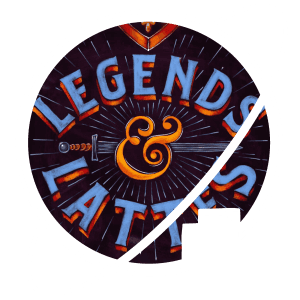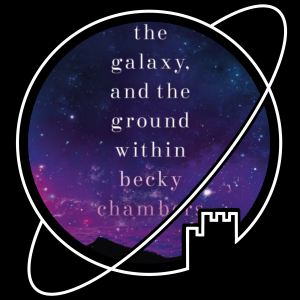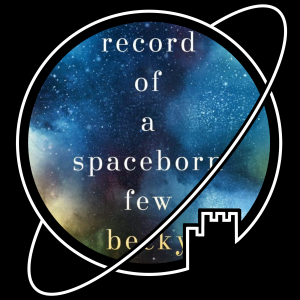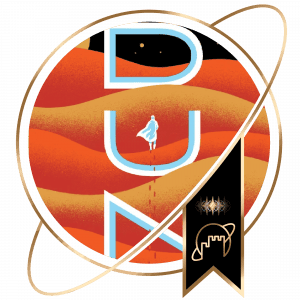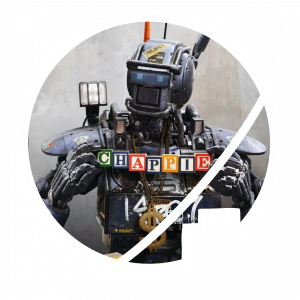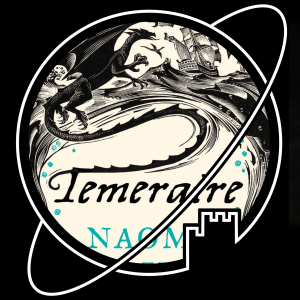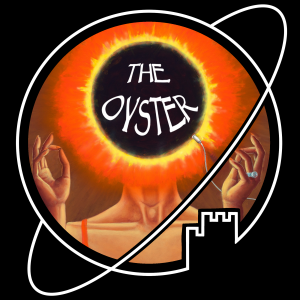Welcome to the Escape Velocity Collection!
We are an opinionated group of friends reviewing all sorts of fantasy and science fiction media. Don’t forget to get to know the curators and visit our curated Collection, where we discuss the stories that never cease to transport us to another world.
Will you escape with us?
LATEST POSTS:
- Book written by Julian May
- Published in 2003
- Part 1 in the Boreal Moon Trilogy
Prince-Heritor Conrig Wincator, heir apparent to the throne of Cathra, is a man with an ambition: to bring all four nations of the island of Blenholme under his Sovereignty. To this end, he has forged an alliance with Ullanoth, the mage-princess of the marshy kingdom of Moss. Deveron Austrey, better known as Snudge, appears to be an unassuming footman in the prince’s service. In reality, however, Snudge is a fledgeling wizard and Conrig’s secret spy – and he is soon to find himself embroiled in the sorcery, war and politics of the rulers of the island…
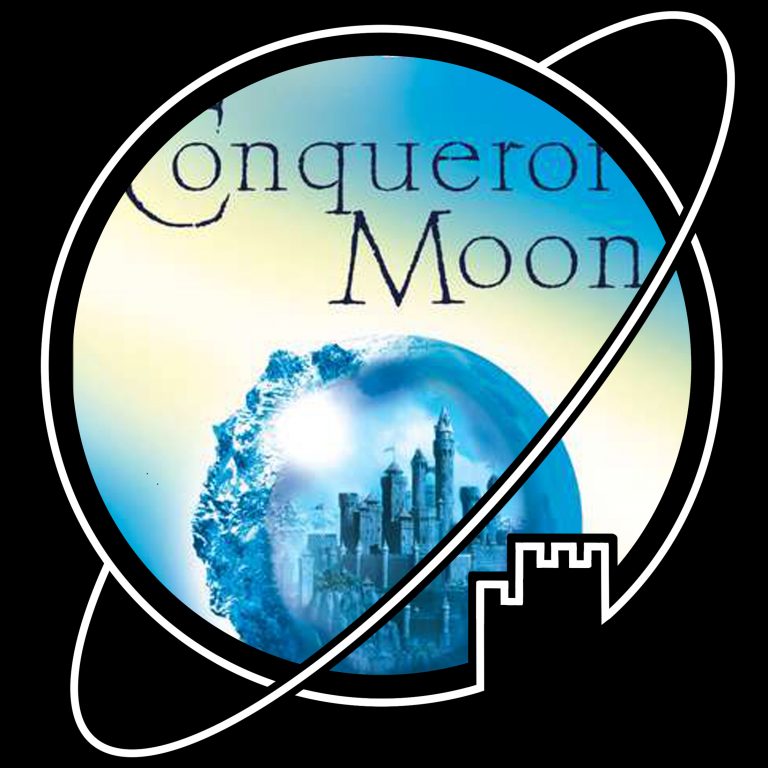

This book is not as exceptional or innovative as Julian May’s Saga of Pliocene Exile (which, admittedly, is probably one of the most formative fantasy experiences I’ve ever read), but it is a very comfortable traditional fantasy story that is well written and features colourful characters. The world feels alive but does not pretend to have the depth of a The Lord of the Rings or the ‘realism’ of a A Song of Ice and Fire. I would classify it is a medium-light but entertaining read – perfect for a reader looking for something that focusses more on escapism.
It wasn’t exactly what I am generally looking for in a fantasy book, so I haven’t immediately started the second part of the trilogy, but they’re still on the list and I’m sure I’ll pick them up one time when I feel like something a bit less dark than my bread-and-butter.
See also:
- Book written by Jan Terlouw
- Published in 1971
- Standalone
The 17 year old Stach dreams of becoming king of the kingdom of Katoren. The old king died on the night of his birth 17 years ago, and a new king has still not been found. The six ministers ruling the country in the kings place give him seven difficult tasks. If Stach completes them all, he will be the new king. But the question rises – do the ministers even want a new king to be found?
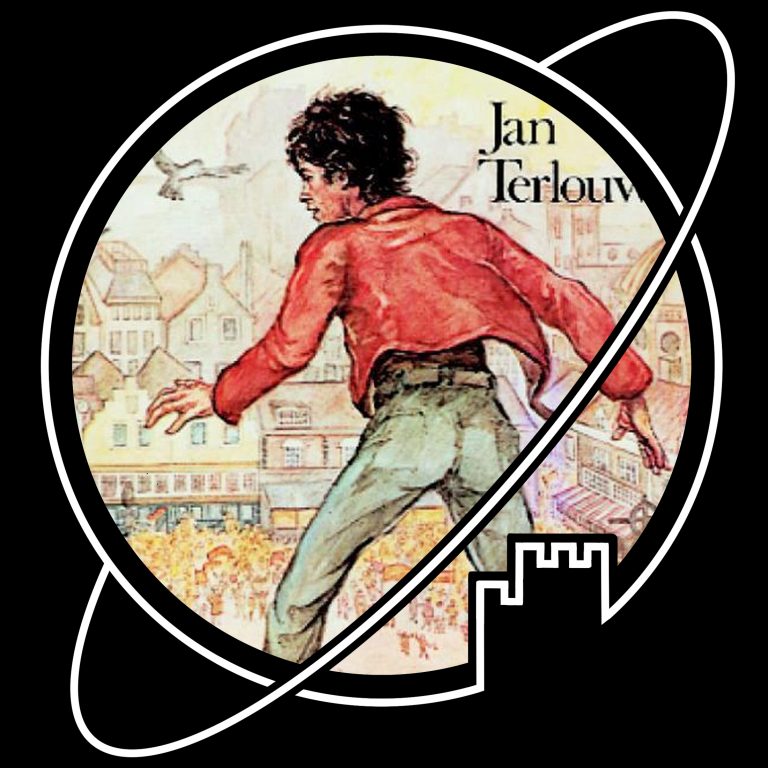
![]()
Listened to the audiobook with Jan Terlouw himself. Another classic Dutch children’s book. It is a great play on the seven works-trope, and full of the beautiful, nonsensical solutions to real problems that only work in children’s tales. There are moral lessons to be learned at each of the tasks, though to be fair, Stach, the main character, does not seem to develop much himself.
The book is beginning to show its age at times (people write letters constantly and the newspaper seems the main mode of communication between communities), but I would definitely still recommend it for both young and old readers – it reads easily and has a high pace, so I would expect it to engage even modern readers.
![]()
Koning van Katoren is a true children’s classic in the Netherlands. I recently reread it (in a desperate attempt to finish my intended 50 books that year) and thoroughly enjoyed it, even at 25.
This book has worldbuilding that stems purely from the plot. Every time Stach arrives in a new town, he finds out that they have one specific problem that’s making life difficult. What is most charming to me, is the way these problems shape the lives of the citizens of each town. you can really see that Terlouw put thought into the consequences that these weird situations would have on all aspects of people’s lives. A lot of it is very nonsensical, but because it has internal consistency, it just works.
If you like fantasy that is ~whimsical~ and doesn’t take itself too seriously, you’ll definitely enjoy this book. I’d also absolutely recommend it to any Dungeon Masters trying to get inspiration for more light-hearted D&D campaigns.
See also:
Tagged:
- Book written by Becky Chambers
- Published in 2014
- Part 1 of the Wayfarers Series
The Long Way to a Small, Angry Planet tells the stories of the crew of a tunneling spaceship, The Wayfarer, who are hired for an important job to create a ‘tunnel’ between a war-torn faraway planet and the more peaceful territories of a confederacy of aliens (and humans).
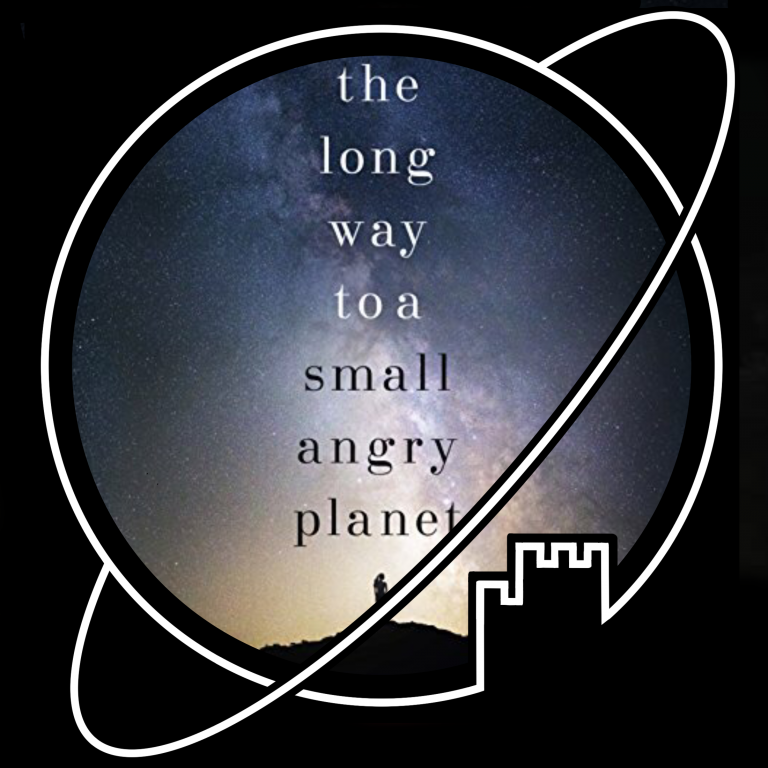

The Long Way to a Small, Angry Planet is a very comfortable read. The plot is not very elaborate, as the story is mainly driven by the characters and their interactions with each other. With the exception of a few life-threatening scenarios, most of these interactions take place during fairly mundane activities (spiced with intriguing worldbuilding). While I quite liked this set-up, those who are looking for a more grand and action-filled story might get disappointed.
On the whole, while reading The Long Way to a Small, Angry Planet, I was most impressed with the inherent inclusivity of the story and setting. The diversity and representation of the many characters and cultures was handled respectfully and included different (alien) races, beliefs, genders and sexualities. Furthermore, several neurodivergent characters and a few characters with medical conditions played significant roles in the story. This book invites the reader to be more empathetic, and to put any prejudices aside.
If you are looking for a nice change of pace from dark and cynical media, I can wholeheartedly recommend this book.

I agree completely with Jop’s review of this book. It is heartwarming yet profound, and I immediately fell in love with all of the characters. I listened to the audiobook performed by Patricia Rodriguez, which I can also wholeheartedly recommend.

The Long Way to a Small Angry Planet is a science fiction novel for a different audience than most, and I believe the level of enjoyment will vary wildly from reader to reader. For me, it was so-so, a nice break from my day-to-day fare but not a remarkable experience. I know that some of the other curators disagree wholeheartedly.
On the one hand, it has a weak plot that basically sees the crew travel from one place to another because they are paid to do a job there, with a couple of (mostly minor) hiccups along the way. It features soft-as-warm-butter sci-fi, with several types of humanoid aliens that have no trouble understanding (or making love to) each other, starships constantly running into each other in the void of space, ‘gravity fields’ inside the spaceships, etc. The book tends to choose the path of least resistance in its worldbuilding, solving technological problems with a hand wave and a two-sentence explanation and sacrificing logic or realism to the well-known shortcuts of your average science fiction story.
On the other hand, by pivoting away from hard sci-fi and plot, the book creates some space to focus on its characters. It seems Chambers was mostly interested in creating likeable characters that have a warm, fuzzy vibe going on. The cast is diverse, and accepting diversity is one of the book’s main themes. It is a pity, however, that one of the results is that there is hardly any tension between the members of the crew (other than some expected workplace friction). With a thin plot and an accepting crew, the book is left without a central conflict, a driving force behind the narrative. Instead, the book relies on the reader getting invested in the characters to read on.
At times, The Long Way to a Small Angry Planet feels like an attempt at channeling the TV-series Firefly that skipped the step where the crew has to earn each other’s trust – and with a liberal sprinkling of woke all over it.
In general, I would recommend this book mostly to people that want a comfortable read about people accepting each other, people looking for a break from the darker outlook of most books in the genre, and maybe the woke crowd that I know is out there.
Probably the book’s greatest merit is the questions it asks about the role and rights of advanced artificial intelligence – I’ve been told that the sequel delves deeper into that issue so I might give that a shot and I’ll update you if I do. Otherwise, this style is really not for me.

This book was a personal reccomendation by Robin and she was, once again, very right. Don’t be deceived by the complicated title (in our household it is now referred to as “Small Angry, Long Way”), for the story takes place in a very accessible sci-fi world. There is, of course, a storyline but this book shines in the way we get to know (and love) the characters. A very comfortable get-away that wasn’t long enough. I enjoyed it thoroughly.
Tagged:
- Board game Designed by Phillipe Keyaerts
- Illustrated by Miguel Coimbra, Cyrille Daujean
- Published by Days of Wonder
- Published in 2009
- Strategy Board Game, 2-5 players
- Playing time: 40 to 80 minutes
Small World is a game in which players pick a combination of fantasy species and special powers to try and raise a profitable empire in a world that is simply much too small. As the game progresses, players do not only need to ponder the moves of their enemies, but also the potential lifespan of their own civilizations. Sometimes, the decline of one empire might lead to new glory for a next one…
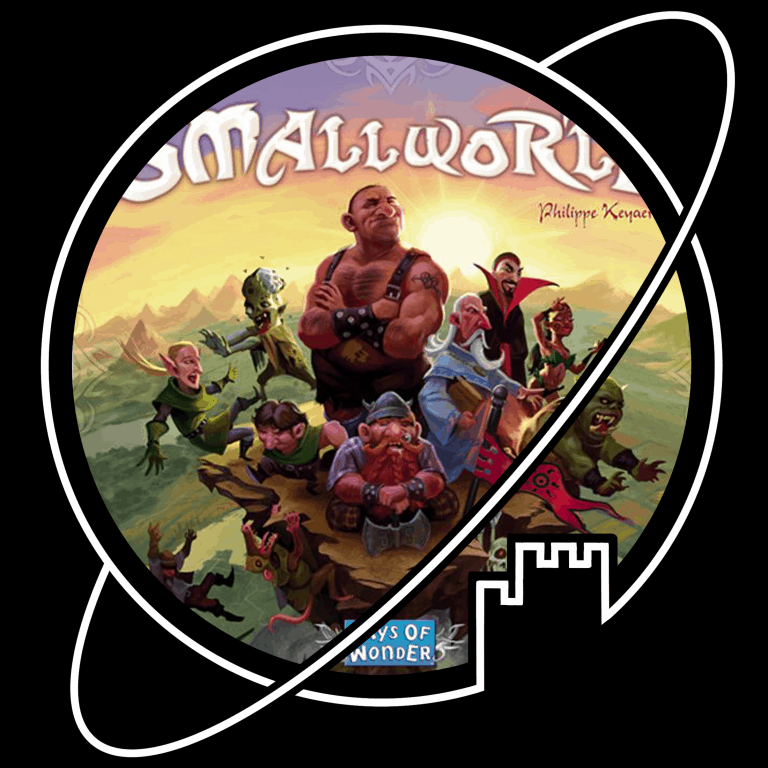

Small World is a wonderful light-hearted game. I’ve been playing it for years and enjoyed every single match, even the ones in which I was mercilessly defeated. In fact, I liked this game enough to even purchase some of its expansions.
At its core, Small World is a fairly simple game: conquer lands and thus earn points. However, through some clever game mechanics you’ll never play a match that’s similar to another. This, along with its relatively short playing time, makes it the perfect game for a lazy afternoon or evening.
The art of this game is appealing, but quirky enough that you’ll forget you’re actually slaughtering whole civilizations. Fun!

The premises is simple: pick a race and a special ability and conquer as many land as you can. Yet, this game mechanic is what makes it a different game each time you play it.
Small World is one of my absolute favourite board games. Whether playing it one-on-one against Jop, or on a bigger board with some friends, I enjoy trying to find the best strategy for the race/ability-combo lying in front of me. Especially in the beginning, after our first few games, I marvelled at the impact the races and special abilities have on the way your game is played.
With several expansions, you will have access to more races than you’ll ever need and extra playing boards to make your conquests even more interesting. Our latest addition, Small World Realms, even gives us the power to build our own worlds and tinker with the game mechanics. Although my collector’s heart wants it all (and we are well on our way, oops), just picking up the base game is enough to engage in some very fun battles.
Similar to:
- TV show developed by Jason Rothenberg for The CW
- Based on The 100 by Kass Morgan
- Starring Eliza Taylor, Thomas McDonnel. Bob Morley, Marie Avgeropoulos, Devon Bostick, Christopher Larkin, Lindsey Morgan, Richard Harmon, with Paige Turco, Henry Ian Cusick and Isaiah Washington
- First Aired on March 19th 2014
- Seven Seasons with 13 to 16 Episodes
In a post-apocalyptic universe, all that remains of humanity lives on a slowly dying space station, called the Ark. One hundred delinquent youth are sent to Earth to see if it is once again habitable. While those on the Ark struggle to keep everything going, the 100 discover that Earth is not as desolate as they expected.
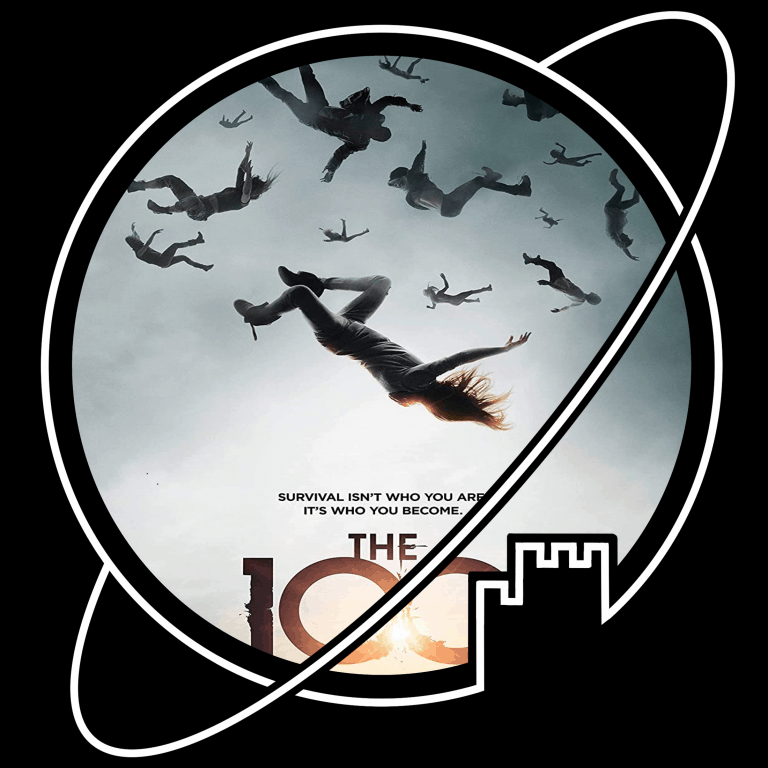

This series is an interesting one. When I watched the first half of the first season, I thought the writing and part of the acting were simply weak. Entertaining YA content, but nothing more. Then, as the season progressed, it suddenly seemed like the quality was growing exponentially. I was hooked. Not only that, the writing from seasons 2 to 4 is among the strongest (worthy of at least four stars) I have seen in recent years.
The 100 contains some interesting ideas that are generally well-executed. The worldbuilding of this post-apocalyptic Earth is solid and the characters have to face some fairly realistic dilemmas. The grimdark setting really makes you think at times. What would I do in such a scenario? Would I be able to make the hard choices? Questions without correct answers.
This series succeeded in delivering a strong and diverse cast of characters, whose stories are strongly interwoven with the plot of each season. On the whole, I liked most characters, even if I hated them. I cursed them, I laughed at them and I cried for them. Some, I even loved.
For those who decide to give this series a chance and find they like both the plot and the characters, I would certainly encourage you to watch the first five seasons. The season finale of the fifth season can serve as an ending to the series as a whole. The tone of the following seasons is very different from the first five seasons. In terms of content, the last seasons contain interesting concepts, but they somewhat come at the expense of the atmospheric unity of the previous seasons.

Jop has made some excellent points. Starting off I was sceptical about the series, but the acting and the storyline grew into somthing with depth and body. I got quite carried away with this one. The politics of war were always a backdrop for the struggles of our main characters, creating some very interesting ethical questions. A bingeable series with shippable characters (team #clexa represent!).
Similar to:
Tagged:
- TV show created by Julian Jones, Jake Michie, Johnny Capps and Julian Murphy for the BBC
- Starring Colin Morgan, Bradley James, Richard Wilson, Angel Coulby, Katie McGrath, Anthony Head and John Hurt
- First Aired on September 20th 2008
- Five Series of 13 Episodes each
The BBC series Merlin tells the story of King Arthur and the legendary wizard Merlin – with a twist. Merlin is a young mage, sent to Camelot by his mother. Here, he meets the young Prince Arthur, who is handsome and fair, but also arrogant and rude. Merlin becomes Arthur’s servant, and finds that whilst he must hide his magic – which is outlawed by the king – he is destined to use it to protect the young prince. Merlin and Arthur both have destinies, and they can’t fulfill them without the other.
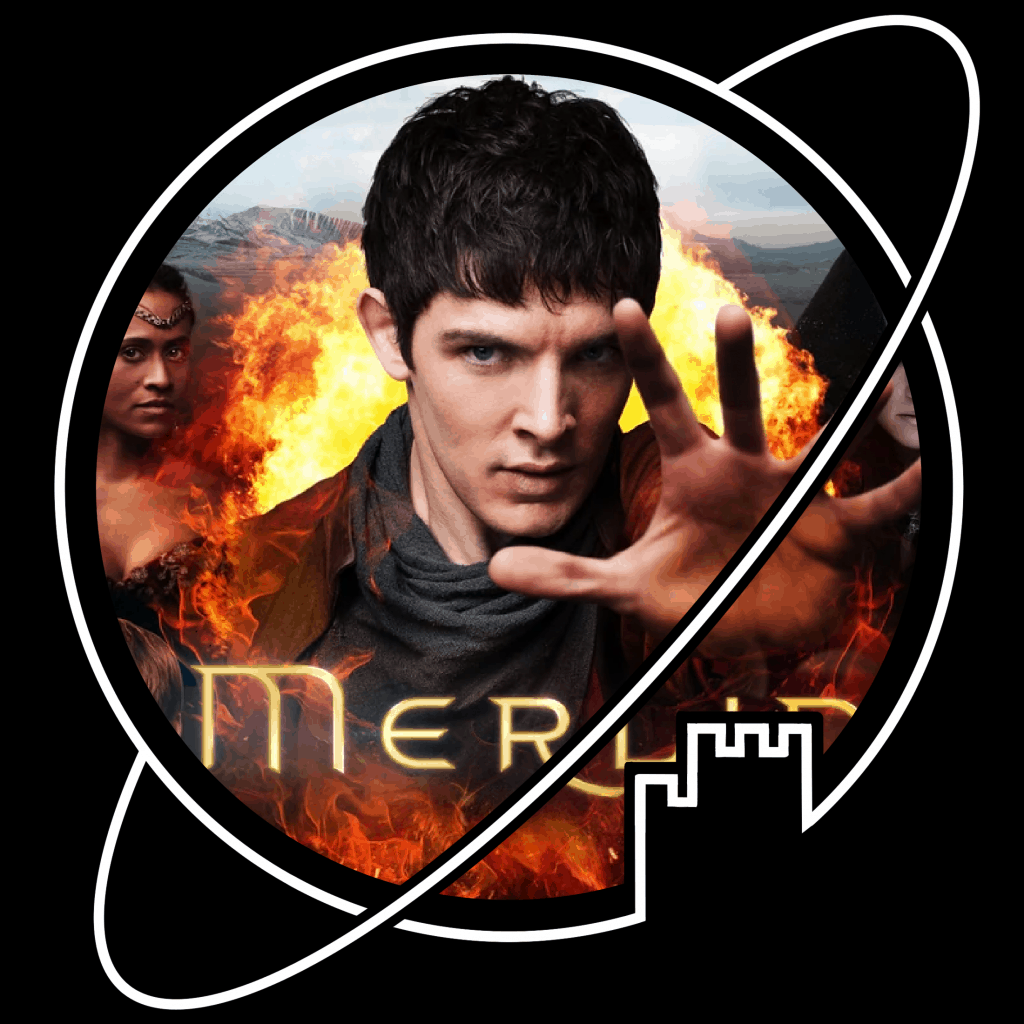

Merlin is one of those shows that has a premise which makes you narrow your eyes, but boy does it deliver. The cast is superb, featuring (then) young talent like Colin Morgan and Katie McGrath, as well as established actors such as Anthony Head. It is a relatively light-hearted fantasy series, which blends comedy with drama effortlessly.
What I like best about Merlin is that it focuses mainly on characters. The show has an episodic structure. There is an overarching plot, but episodes can often be watched separately and still be enjoyed. However, characters show serious growth throughout the series. The cast has great chemistry, which makes it a joy to watch.
This show has 5 series (or seasons) with 13 episodes each. While it doesn’t always have the clearest overarching narrative, the relative shortness of the series means that it never has the chance to unravel and stray too far from the originally intended story.
The show does feature some queerbaiting, so be aware of that.
I would recommend Merlin to anyone who enjoys a good BBC series, and anyone who likes their fantasy light-hearted and character-driven.
Similar to:
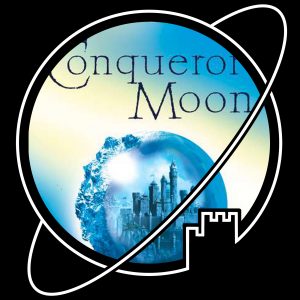
Review: Conqueror’s Moon – Julian May
Part one in the Boreal Moon Trilogy – Prince Conrig Wincantor has the ambition to unify the island of High Blengholme under Cathran Sovereignty. With the help of the sorceress Ullanoth and Deveron Austrey, his secret spy, he sets in motion his daring plan.
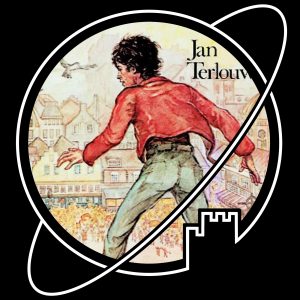
Review: Koning van Katoren / How to Become King – Jan Terlouw
17 year old Stach undertakes to complete seven dangerous and difficult tasks to claim the throne of Katoren from the six ministers that have jealously guarded it since the death of the old king.
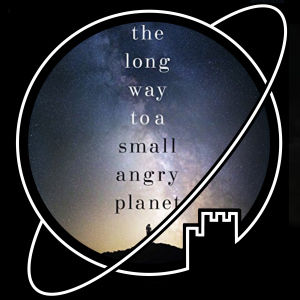
Review: The Long Way to a Small, Angry Planet – Becky Chambers
Part one in the Wayfarer series – The Long Way to a Small, Angry Planet tells the stories of the crew of a wormhole-tunneling spaceship, The Wayfarer.
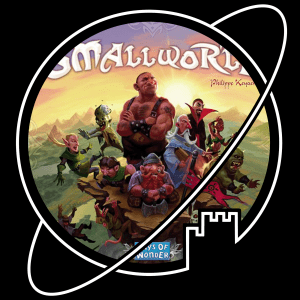
Review: Small World – Days of Wonder
Small World is a game in which players pick a combination of fantasy species and special powers to try and raise a profitable empire in a world that is simply much too small. As the game progresses, players do not only need to ponder the moves of their enemies, but also the potential lifespan of their own civilizations. Sometimes, the decline of one empire might lead to new glory for a next one…
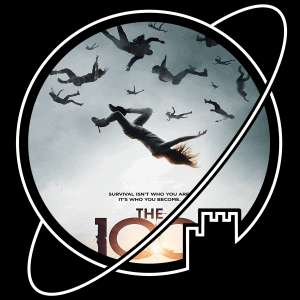
Review: The 100 – The CW
In a post-apocalyptic universe, all that remains of humanity lives in a slowly dying space station, called the Ark. One hundred delinquent youth are sent to Earth to see if it is once again habitable. While those on the Ark struggle to keep everything going, the 100 discover that Earth is not as desolate as they expected.
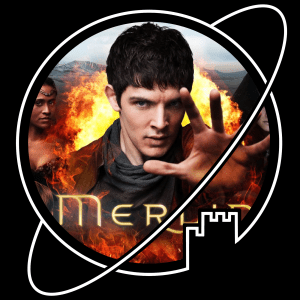
Review: Merlin – BBC
A light-hearted yet dramatic BBC 1 retelling of the story of Arthur and Merlin where both are young men who initially dislike each other, but grow to appreciate the other as the show progresses.









